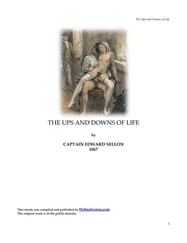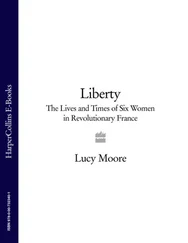Some of these, in these years and later, were pirated, but he made no protest.
Then – 1610–11 – he returned to Stratford and settled down for good and all, and busied himself in lending money, trading in tithes, trading in land and houses; shirking a debt of forty-one shillings, borrowed by his wife during his long desertion of his family; suing debtors for shillings and coppers; being sued himself for shillings and coppers; and acting as confederate to a neighbour who tried to rob the town of its rights in a certain common, and did not succeed.
He lived five or six years – till 1616 – in the joy of these elevated pursuits. Then he made a will and signed each of its three pages with his name.
A thorough businessman’s will. It named in minute detail every item of property he owned in the world – houses, lands, sword, silver-gilt bowl, and so on – all the way down to his ‘second-best bed’ and its furniture.
It carefully and calculatingly distributed his riches among the members of his family, overlooking no individual of it. Not even his wife: the wife he had been enabled to marry in a hurry by urgent grace of a special dispensation before he was nineteen; the wife whom he left husbandless so many years; the wife who had had to borrow forty-one shillings in her need, and which the lender was never able to collect of the prosperous husband, but died at last with the money still lacking. No, even this wife was remembered in Shakespeare’s will.
He left her that ‘second-best bed’.
And not another thing ; not even a penny to bless her lucky widowhood with.
It was eminently and conspicuously a businessman’s will, not a poet’s.
It mentioned not a single book .
Books were much more precious than swords and silver-gilt bowls and second-best beds in those days, and when a departing person owned one he gave it a high place in his will.
The will mentioned not a play, not a poem, not an unfinished literary work, not a scrap of manuscript of any kind .
Many poets have died poor, but this is the only one in history that has died this poor; the others all left literary remains behind. Also a book. Maybe two.
If Shakespeare had owned a dog – but we need not go into that – we know he would have mentioned it in his will. If a good dog, Susanna would have got it; if an inferior one his wife would have got a dower interest in it. I wish he had had a dog, just so we could see how painstakingly he would have divided that dog among the family, in his careful business way.
He signed the will in three places.
In earlier years he signed two other official documents.
These five signatures still exist.
There are no other specimens of his penmanship in existence . Not a line.
Was he prejudiced against the art? His granddaughter, whom he loved, was eight years old when he died, yet she had had no teaching, he left no provision for her education although he was rich, and in her mature womanhood she couldn’t write and couldn’t tell her husband’s manuscript from anybody else’s – she thought it was Shakespeare’s.
When Shakespeare died in Stratford it was not an event . It made no more stir in England than the death of any forgotten theatre-actor would have made. Nobody came down from London; there were no lamenting poems, no eulogies, no national tears – there was merely silence, and nothing more. A striking contrast with what happened when Ben Jonson, and Francis Bacon, and Spenser, and Ralegh and the other distinguished literary folk of Shakespeare’s time passed from life! No praiseful voice was lifted for the lost Bard of Avon; even Ben Jonson waited seven years before he lifted his.
So far as anybody actually knows and can prove , Shakespeare of Stratford-on-Avon never wrote a play in his life.
So far as anybody actually knows and can prove , he never wrote a letter to anybody in his life.
So far as anyone knows, he received only one letter during his life .
So far as anyone knows and can prove , Shakespeare of Stratford wrote only one poem during his life. This one is authentic. He did write that one – a fact which stands undisputed; he wrote the whole of it; he wrote the whole of it out of his own head. He commanded that this work of art be engraved upon his tomb, and he was obeyed. There it abides to this day. This is it:
Good friend for Iesus sake forbeare
To digg the dust encloased heare:
Blest be ye man yt spares thes stones
And curst be he yt moves my bones
Sam L. Clemens, D.Litt ,
Missouri, USA
PROLOGUE
A Dead Man in Deptford
Friends in high places can give you a pain in the neck, and Eleanor Bull’s connections were positively stratospheric. She was cousin to Blanche Parry, who was a close confidante of the Queen, and also related to Lord Burghley, Elizabeth’s chief minister and the most powerful man in the land. She had an ear in court when she needed one, but was a servant of the court when her connections required it. They had made inconvenient demands of her before. But this time it was different. This time she had a dead poet on her hands.
Widow Bull had a maxim: ‘A friend i’ th’ court is better than a penny in purse.’ She had said it to the poet that morning. In a later age she might well have embroidered the wisdom and had it framed, hanging above the fireplace. Her husband Richard, sub-bailiff at the local manor house, had died three years earlier, leaving her with some standing but little money. It was her friends in court who helped put the pennies in her purse; in return they called on her discretion and enlisted her hospitality. Mrs Bull ran what we would today call a ‘safe house’ and letter-drop, in Deptford Strand.
History has dealt Eleanor Bull a double blow. It has turned her respectable, if somewhat clandestine establishment into a rowdy tavern, and it linked her name for ever with the death of the brilliant young poet and playwright Christopher Marlowe, who (as tradition would have it) was ‘killed in a drunken brawl over a bill in Deptford’. We now know that was not the case. Recent research suggests that Marlowe was murdered as a consequence of his involvement in the shady world of Elizabethan espionage and behind-the-scenes politicking. The subsequent obfuscation of the story was deliberate.
Deptford, in 1593, was an ideal location for a safe house. It was within easy reach of London, and a convenient dock for ships that trafficked the Thames, to and from the open seas. Queen Elizabeth’s favourite residence, and a frequent meeting place of her cabinet, the Privy Council, was less than a mile down river at Greenwich. Two shipyards, one for the navy and one for merchant ships, filled the air with the smells of pitch and fresh-sawn timber as they churned out vessels to plunder Spanish treasure, explore the globe, and protect the realm. The Admiral of the Fleet, Lord Howard of Effingham, had a house on Deptford Green. Foreign musicians from the Queen’s consorts and the Chapel Royal choir lived in Deptford, as did the joiners, chandlers and ropemakers of the ship industry, cadets from the naval college at Trinity House, and a transient population of seamen … and spies. Sailors, travellers, foreigners and minor courtiers could mingle unheeded on the streets. English and French, German and Dutch might be heard around tables in taverns. Some 4,000 incomers arrived to live in Deptford in the l590s, and most of them descended on the lodging houses in the riverfront area known as Deptford Strand. Mrs Bull’s ‘victualling-house’ would not have stood out at all.
She was used to taking in tired travellers from across the Channel – the ‘projectors’ and ‘intelligencers’ of the secret service network controlled by the Secretary of State, Sir Francis Walsingham, and after his death by Lord Burghley’s hunchback son, Sir Robert Cecil. She soothed spies ravaged by seasickness with her famous posset (milk and egg yolks ‘seethed on a fire’, poured from on high into a bowl of warm ale or sack, and with a little ‘ginger and synomon cast on’*), passed on letters and packages from one unnamed man to another, or waited quietly out of earshot while visitors spoke to men from court.
Читать дальше












